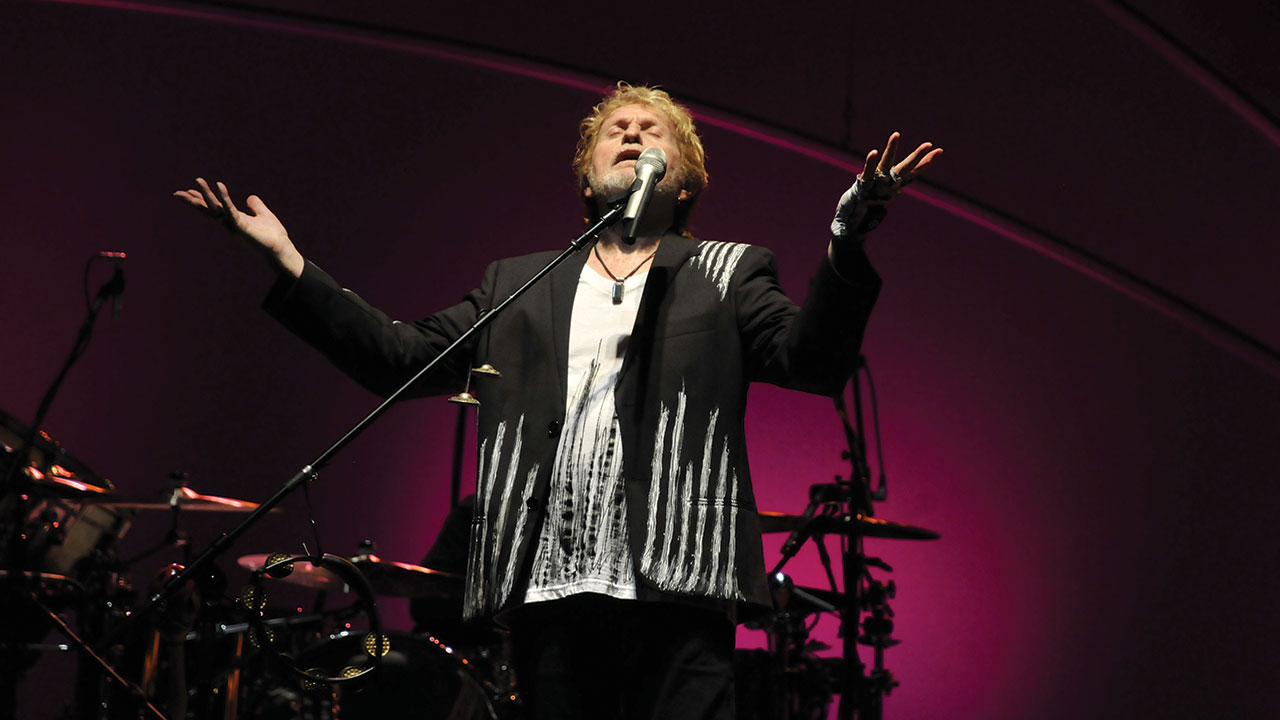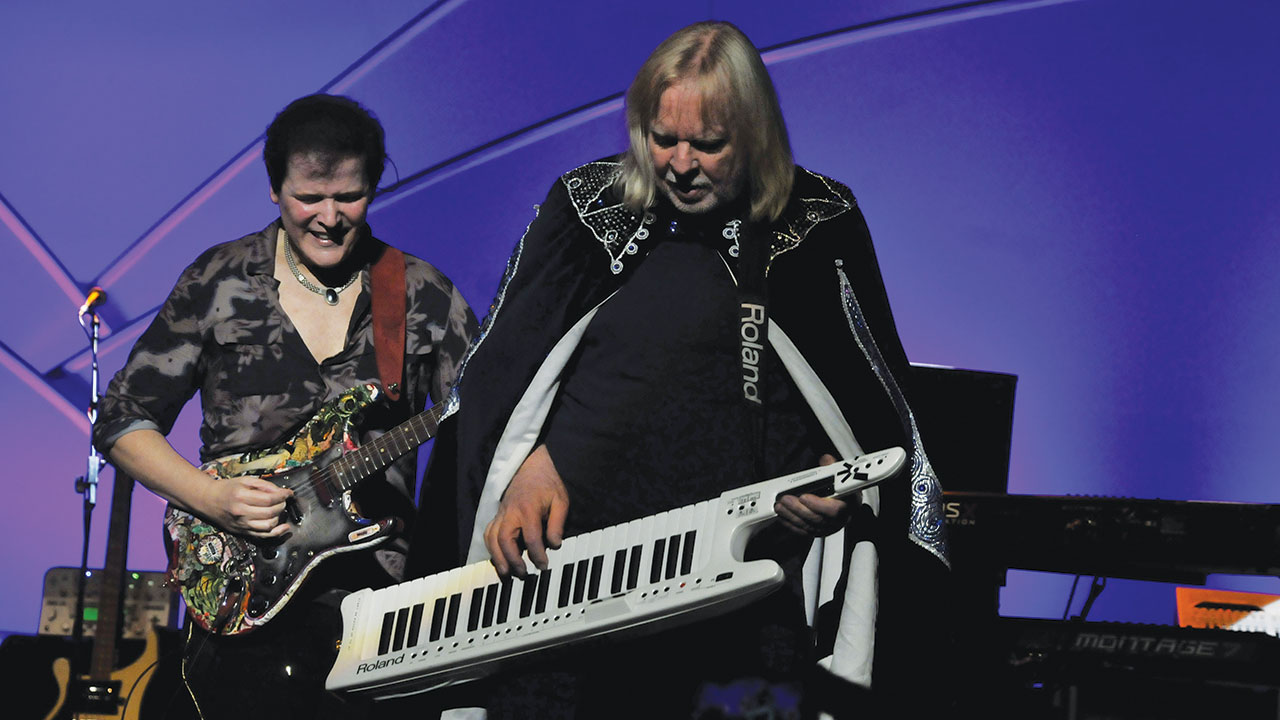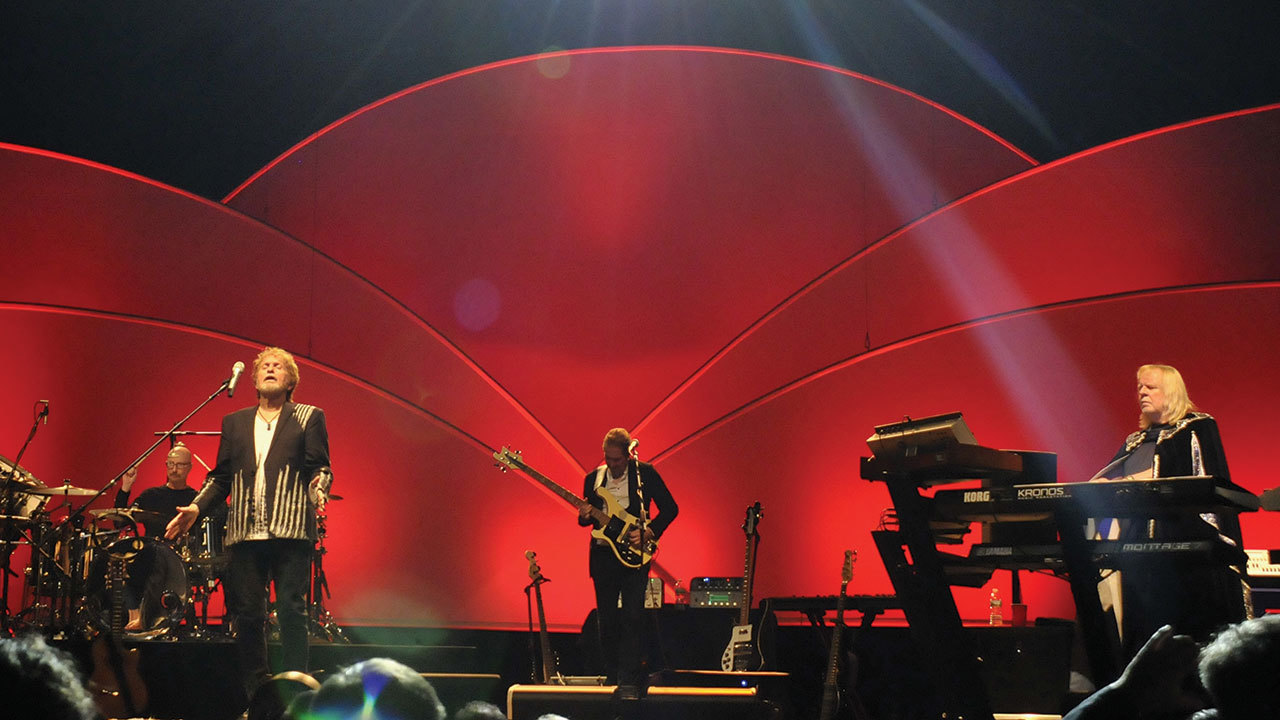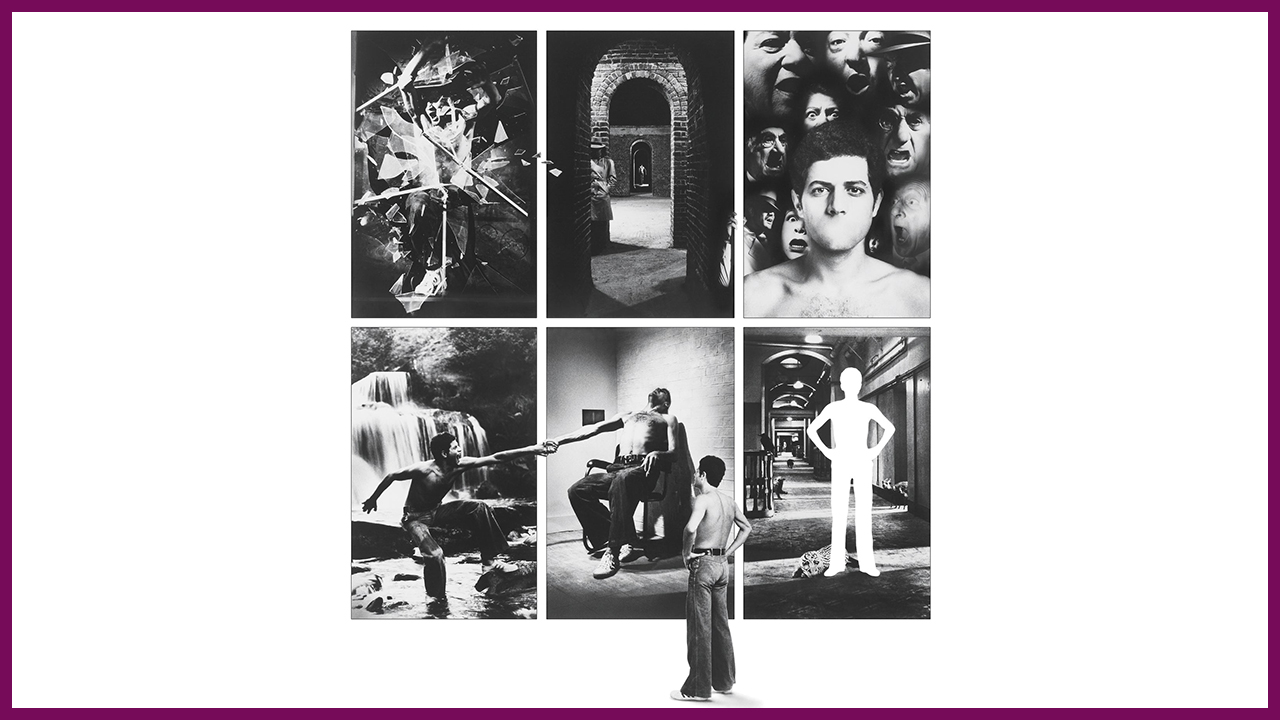You can trust Louder
The last time Jon Anderson, Trevor Rabin and Rick Wakeman shared a stage together – Yes’ Union tour – pre-dates the internet era. Since then, Yes have gone through more evolutions than Doctor Who. It’s fitting, then, that the trio of Yes alumni open the show with Perpetual Change.
When Anderson sings the first few words, the warm reception dispels any lingering chills from the cool October night outside. Attired in a suit jacket and T-shirt – a welcome change from yesteryear’s pantsuits adorned with epaulettes – Anderson looks younger than 72. Even more impressively, his voice sounds impossibly youthful.

Wakeman’s punchy keyboards dominate Perpetual Change, supplanting the jagged guitar riff of the original recording – Rabin’s guitar is buried in the mix. In the two decades since Rabin left Yes to compose movie soundtracks, one imagines that he’s spent more time holding a conductor’s baton than a guitar pick. Can he can still cut it? The South African-born guitarist offers a decisive answer during Hold On: his power chords sound as brawny as ever. You could raise a flag to the anthemic soloing on Lift Me Up, and during an extended Rhythm Of Love, he performs guitar manoeuvres that are probably illegal in 20 states.
What has changed is Rabin’s voice, now thicker and deeper. On this eighth show of the tour, he’s still rebuilding his vocal stamina, and gets an assist on harmonies from drummer Lou Molino III and bassist Lee Pomeroy. However, the Beach Boys-influenced doo-wop in Rhythm Of Love sounds suspiciously like it may have been augmented by a sample of the original recording.
- Anderson, Rabin and Wakeman: the inside story behind this year's biggest reunion
- Yes Quiz: how well do you know the '80s' era?
- Yes: "90125 Was A New Beginning For Us, Not Just Another Chapter"
- Jon Anderson: My last message to Chris Squire
Rabin’s compositions slot into a setlist that’s weighted toward 1970s songs – mostly hits such as I’ve Seen All Good People and Roundabout. So much for the pre-tour chatter about delving deep into the Big Generator and Talk albums. The evening’s sole surprise is a tender rendition of The Meeting from the Anderson, Bruford, Wakeman and Howe record. Anderson’s talk of boldly redesigning Yes material hasn’t panned out either.
Anderson, Rabin and Wakeman don’t reimagine the material so much as imbue it with their distinctive individual identities. Still, it’s churlish to complain about ARW’s conservative approach when they sound so vibrant. Wakeman bolsters Rhythm Of Love with clavinet, and contributes a wiggly, one-handed Moog solo. (Notably, the keyboardist wears a bejewelled cape that must be a nightmare for the dry cleaners.) Rabin tweaks the timbre of And You And I by eschewing an acoustic guitar in favour of his Stratocaster. Molino impresses too, as he switches between hard-driving rhythms and jazzy interludes. His robust fills perk up a slightly abbreviated arrangement of Long Distance Runaround.
The unenviable task of playing Chris Squire’s iconic bass parts falls to Pomeroy. The left‑handed bassist, who plays a backwards-strung Rickenbacker, underpins Heart Of The Sunrise with beefy resonance. Rather than just mimic Squire during The Fish (Schindleria Praematurus), the man plays a dexterous homage that includes his own touch of funk.
Sign up below to get the latest from Prog, plus exclusive special offers, direct to your inbox!

Awaken particularly benefits from this personality-led approach. The epic begins with a dynamic prelude in which Anderson plucks a small harp, while Molino pounds his toms with felt-tipped mallets. It’s one of the few times that ARW take welcome liberties with a studio-version arrangement. During the sublime middle section, Wakeman conjures up grand laminations of organ that make the theatre sound like a cathedral (though it’s too bad the rudimentary lighting rig does little to augment the musical grandeur). When Anderson’s flawless voice soars during the climax, he looks as if he’d levitate if it weren’t for the combat boots anchoring his feet.
The allure of a supergroup such as ARW is that the musicians will pool their unique talents to forge a wholly new sound. What will ARW sound like when they release their oft-promised new material in 2017? Will these players create a fresh iteration of de facto Yes music that draws equally from classic progressive rock and Rabin’s pop inclinations? ARW’s live show offers few clues. The band themselves may not know the answer yet. If anything, this tour may be an opportunity for Anderson, Rabin and Wakeman to first reacquaint themselves musically.
The musicians share numerous laughs and hugs. During Owner Of A Lonely Heart, Wakeman straps on a keytar for a duel with Rabin. As the two friends walk into the crowd to play the coda, their bonhomie is infectious. With personal chemistry like this, ARW’s musical future is bright with promise.
The Jon Anderson Quiz: how well do you know Yes's main man?
Yes: The Real Story Behind Tales From Topographic Oceans
Roger Dean: How I designed the Yes classic Close To The Edge

